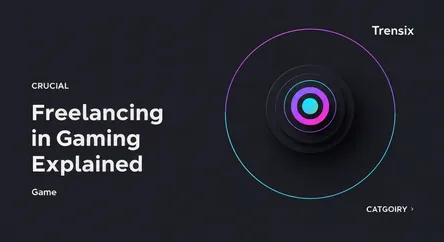Game
Freelancing in Gaming Explained

Discover the rise of freelancers in the game industry. Learn why studios and developers are embracing project-based work for flexibility and talent.
What is it?
A freelancer in the game industry is a self-employed professional who offers specialized services to studios on a project or contract basis. Instead of being a permanent employee, they operate as independent contractors. Their skills can span the entire development pipeline, including concept art, 3D modeling, programming, narrative design, and audio engineering. Studios of all sizes, from small indie teams to major AAA publishers, hire freelancers to fill skill gaps, manage workload peaks, or bring unique expertise to a game without the long-term commitment of a full-time hire.
Why is it trending?
The freelance model is surging in popularity due to its flexibility and cost-effectiveness. For studios, it allows them to scale their teams dynamically, bringing in expert talent precisely when needed and avoiding the overhead costs of permanent staff. The global shift towards remote work has also made it easier than ever to collaborate with talent worldwide. For developers, freelancing offers autonomy, the ability to choose projects that align with their passions, and the potential for a better work-life balance compared to the notorious "crunch" culture at some studios.
How does it affect people?
This trend impacts career paths and studio operations. For individuals, it provides freedom and diverse experiences but comes with challenges like inconsistent income and the need for self-promotion. For the industry, it creates a more agile and accessible talent pool, enabling smaller studios to compete by hiring top-tier specialists for short-term contracts. This fosters innovation and allows for a more distributed and globalized game development ecosystem, breaking down geographical barriers to creating games and finding work.